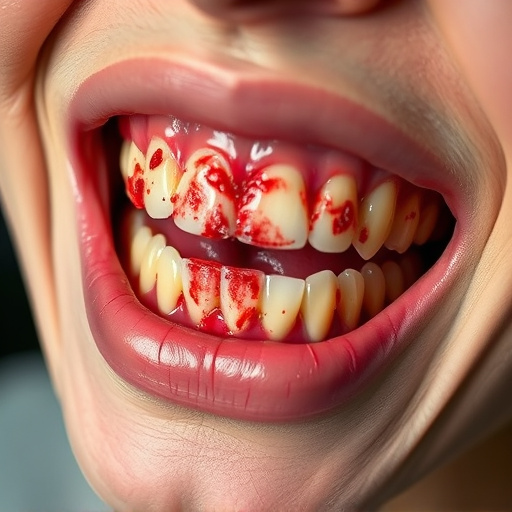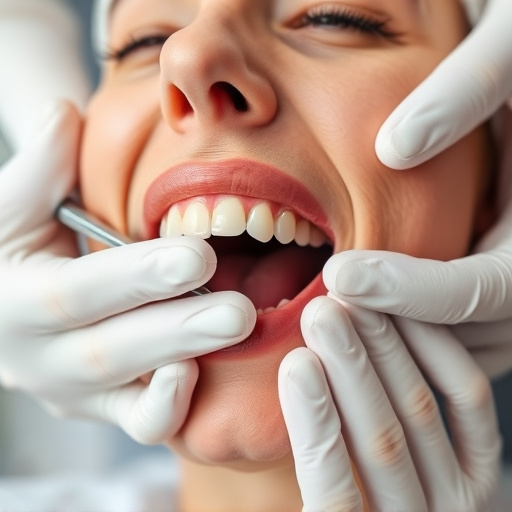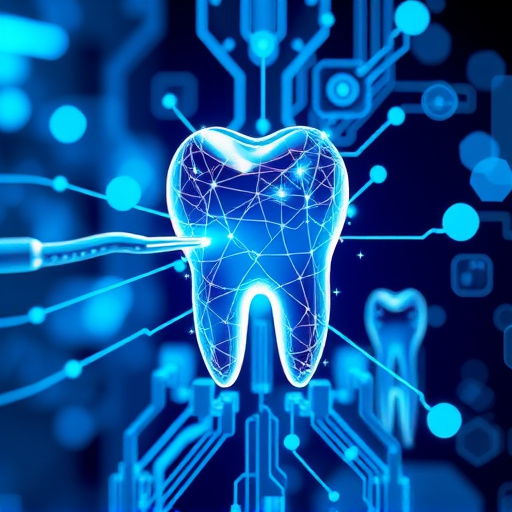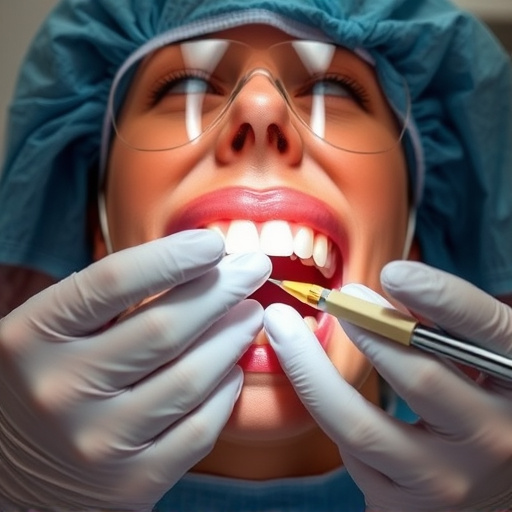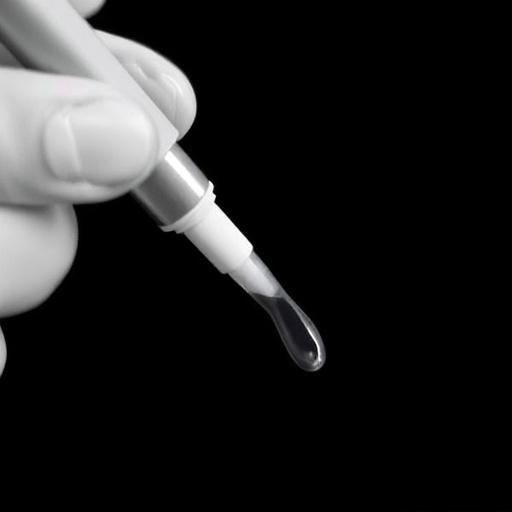Dental sealants for teeth are protective coatings that prevent decay and gum disease by sealing out sugar and food particles in hard-to-clean areas, such as molars and premolars. They act as a barrier against bacteria, reducing the risk of cavities and erosion of enamel, and offer long-term oral health benefits when combined with regular teeth cleaning. Sealants are a cost-effective, non-invasive cosmetic dentistry solution that can last several years with proper care and reapplication during check-ups.
Dental sealants for teeth are a simple yet effective way to protect your oral health. This article explores how these protective barriers, typically applied to molars and premolars, shield teeth from sugar and food particles. By sealing the tooth’s surface, sealants prevent bacteria from breaking down sugars into acids that cause cavities. We’ll delve into the benefits of dental sealants for long-term oral health and understand why they’re a valuable addition to any comprehensive dental care routine.
- Understanding Dental Sealants: A Protective Barrier
- How Sealants Shield Teeth from Sugar and Food Debris
- Benefits of Dental Sealants for Long-Term Oral Health
Understanding Dental Sealants: A Protective Barrier
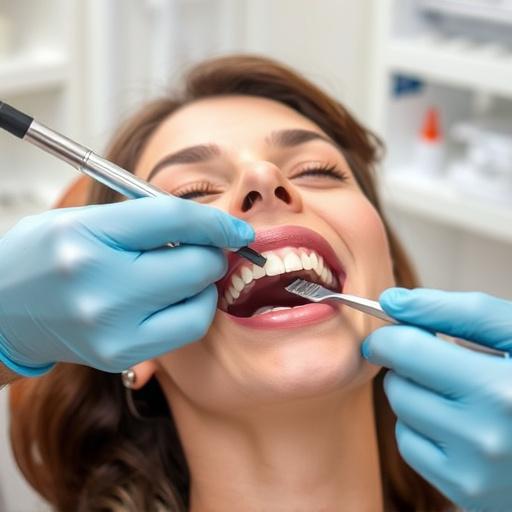
Dental sealants for teeth are a protective coating applied to the chewing surfaces of back teeth to prevent decay and gum disease. They act as a physical barrier, sealing out sugar and food particles that can cause damage. This is particularly beneficial in areas that are hard to clean, like molars and premolars, where food debris can easily become stuck.
Considered a form of cosmetic dentistry, sealants offer more than just aesthetic benefits. By protecting teeth from the onset of decay, they can save you from costly dental procedures such as cavities filling or even wisdom tooth removal later on. Regular teeth cleaning is still essential to maintain oral health, but sealants provide an extra layer of defense against bacteria and sugars that can erode enamel.
How Sealants Shield Teeth from Sugar and Food Debris
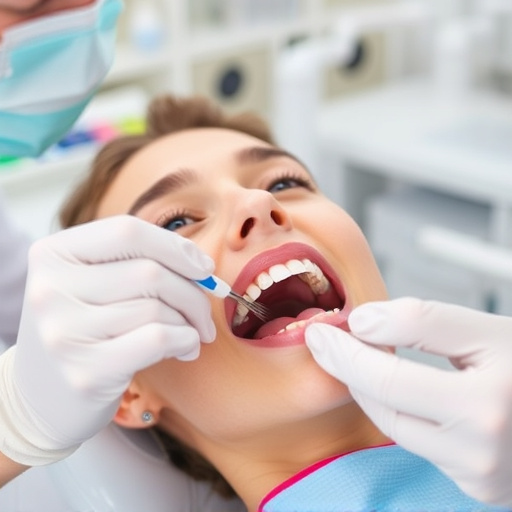
Dental sealants for teeth act as a protective barrier, shielding them from harmful sugar and food debris. These thin, durable coatings are applied to the chewing surfaces of back teeth, where tooth decay often starts. By sealing off the pits and grooves on these surfaces, they prevent plaque—a film of bacteria that causes cavities—from accumulating and producing acids that erode tooth enamel.
In addition to protecting against sugar, sealants also guard against food particles that can get stuck in the crevices of teeth, further reducing the risk of decay and gum disease. Regular oral exams and routine teeth cleaning remain crucial for maintaining optimal oral health, but dental sealants offer an extra layer of defense, especially for children’s dentistry.
Benefits of Dental Sealants for Long-Term Oral Health
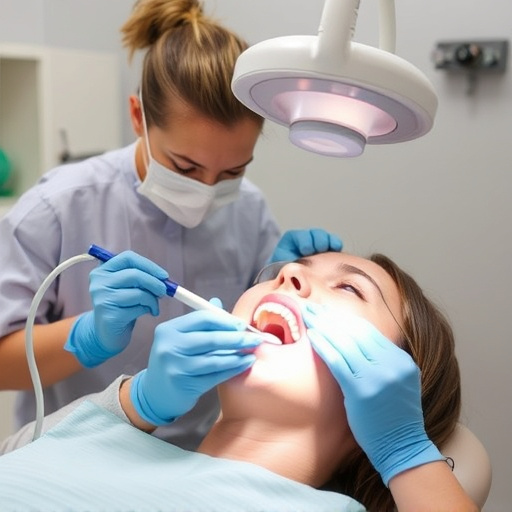
Dental sealants for teeth offer significant long-term benefits for oral health, making them a valuable tool in preventive dentistry. By applying a protective coating to the chewing surfaces of back teeth, sealants create a physical barrier against sugar and food particles that can cause tooth decay. This simple yet effective method significantly reduces the risk of cavities, especially in areas difficult to reach during regular dental cleanings.
Compared to other cosmetic dentistry options, dental sealants are relatively low-cost and non-invasive. They can last for several years with proper care, providing lasting protection against bacteria and plaque buildup. Regular check-ups and reapplication as needed ensure their effectiveness, contributing to a healthier smile and reducing the risk of future dental issues.
Dental sealants for teeth act as a protective barrier, shielding them from sugar and food debris. By sealing the deep grooves and pits, these sealants prevent plaque buildup and the subsequent risk of tooth decay. The long-term benefits of dental sealants include reduced cavities, less need for fillings or extractions, and improved overall oral health. Incorporating sealant applications into regular dental check-ups can significantly contribute to maintaining a healthy smile.







